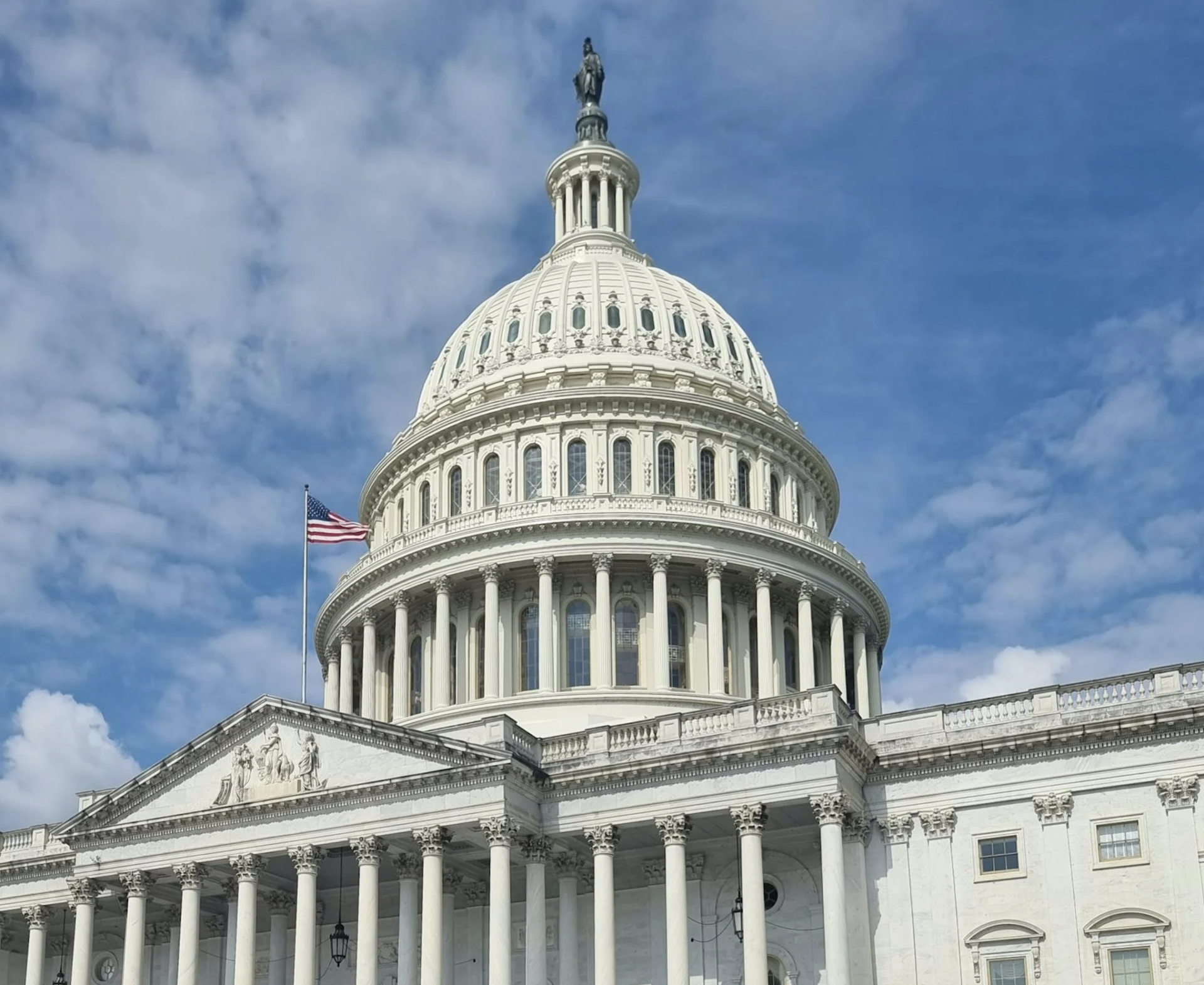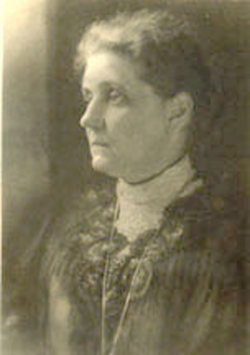American Pragmatism and American Democracy

Jason Ralph, University of Leeds
I have a confession. I’ve been having a 35-year love affair with American democracy. Under the cover of annual visits to the US - usually to the International Studies Association (ISA) conference - I’ve sated a desire to be closer to the higher ideals of Jeffersonian democracy. I cannot say I’ve always been happy in the affair. But the memory of good times and the pull of the Lacanian fantasy keeps me coming back.
This year’s ISA conference was different. I was worrying whether I would ever see my lover again.
I’m not usually a worrier. In fact, the affiliation on my conference lanyard read “optimistic Brit”. The conference paper I presented argued US democracy and leadership could be saved by mining the cultural resources of Jeffersonian republicanism.
The audience didn’t have to raise their hands. I could see the scepticism in their faces.
What then could save my special relationship?
I didn’t have to look far. I found what I needed in a suburb of the city that hosted our conference.
ISA this year was in Chicago and the ‘windy city’ was a good site for my romantic rendezvous. That is because it has a story to tell about American philosophical Pragmatism and the progressive movement it informed.
A short walk from the conference hotel is Hull House. It is now a museum dedicated to the women who joined the philosopher and activist Jane Addams. They worked tirelessly in the early 20th century to nurture the public spirit in a rapidly changing city. An IR audience familiar with the works of J.Ann Tickner and Jacqui True, as well as Molly Cochran, will know of their influence on the peace movements during and after the Great War.
John Dewey would occasionally visit Hull House and together they would contribute to the development of a very practical philosophy: Pragmatism. Read Charlotte Haddock Seigfried’s Pragmatism and Feminism: Reweaving the Social Fabric if you want to know more.
I could not resist then. I took a break from ISA panels and walked to Hull House. There she was. For a fleeting moment my faith in the democratic myth was renewed.

Jane Addams

Hull House
But I could not shake the scepticism on those faces. The doubts remained. The questioning hands were still up. “Addams and Dewey, they’re in the past. What makes you certain their faith in democracy will influence the future?”.
As a good Pragmatist I am never certain. Whether American democracy survives is contingent on whether those taking action have a vision. The American Pragmatist tradition can help activists focus. Being reminded of that eased my anxieties. My faith may turn out to be unwarranted, but it is not blind.
American Pragmatism emerged in the late 19th century from a sense that the certainties of a previous order had broken down and social change led to the moral and political contestation of competing truth claims.
The risk that contestation would turn into paralyzing partisanship, or even catastrophic violence, increased if people did not know how to rediscover the public good. As Louis Menand’s popular book The Metaphysical Club tells us, the trauma of the US Civil War set the scene for the emergence of Pragmatism.
A Pragmatist sense that one might be persuaded to compromise, and in so doing secure one’s interest and identity in the discovery and realisation of a reconstituted ‘public’ good, is crucial here.
If Dewey’s ‘pedagogic creed’ could inform communities of practice like they did at Hull House then that could nurture the democratic mind. Cognitively equipped, democratic practices could peacefully construct (and reconstruct) the public good in response to an ever-changing environment.
But I still see sceptical faces. The questioning hands are still up. “This just won’t work in the current moment”.
“What if power is not imbued with the same empathetic and deliberative spirit as Addams and her fellow-travellers? What if power is so certain of its own righteousness that it does away with the institutions of democracy?”
Pragmatism is a practical philosophy. It does not sit on the sidelines and let these ‘men of action’ tell us what we should think and do. It politically mobilises ‘publics’ to make sure their interests and identities are included in the processes that constitute the common good.
It follows then that the Pragmatist will not acquiesce in the dismantling of democratic institutions. Political action will be taken to protect those institutions when they are under assault.
It is important, however, to understand how a Pragmatist inspired movement would do this.
I think Pragmatism shares something with progressive realism here: an ethic of consequence. Political opposition to save democracy should be performed prudently. It should not alienate the people one is trying to persuade. This is a matter of judgement and as the split between Addams and Dewey on the US entry into the Great War demonstrated, the like-minded can disagree on political tactics.
The Pragmatist sense that social realities evolve – what Emanuel Adler calls a processual ontology – is really important here. The struggle against anti-democratic forces should not reify the opponent as an enemy. Pragmatism is known for finding creativity in breaking down unhelpful dualisms. Resisting the temptation to construct friend-enemy binaries is again crucial.
A more effective stance assumes that anti-democratic forces are simply suffering from memory loss. In this case they have forgotten the legal and social foundations that underpinned US power. This is not a moral struggle, therefore. Moral fights can be dangerous because their certainties notionally justify extreme measures. This is an epistemic struggle. It is about recovering a faith in democracy.
To treat the current political attack on democratic foundations as something that emerges from a fixed and essentialist culture is unnecessary and imprudent. It merely entrenches division and gives up on the democratic ethos of persuasion.
Clearly there is a vanguard of the New Right that is unpersuadable. But there are also people wondering if their vote in the last election was the right one. As Sir Kier Starmer’s UK Labour Party has shown, you can convince these people to reject the politics of the New Right if you offer a patriotic alternative to the chaos it causes.
But the hands go up again (hopefully for one last time). “How does a Pragmatist-inspired attempt to protect and renew American democracy differ from American liberalism?”
That is a relatively easy one. Post Cold-War liberalism has shown an unwarranted certainty. The most obvious statement of this was Francis Fukuyama’s End of History thesis, but we also find it in the rhetoric of liberal politicians like President Obama. To be a liberal, in other words, is to be on the right side of History. Here the liberal identity is securing its Self by speaking the language of epistemic authority. It knows it is right because history (and Obama) says so.
But that is a problem. If liberals act with the epistemic certainty that history is “on their side”, they will be less diplomatic in their relations with other cultures. Additionally, they will be more likely to have a condescending attitude towards political opponents. This is the kind of thinking that was in background of Hillary Clinton’s infamous ‘deplorables’ remark. As she found out, and as liberals are possibly realising, it is bad politics.
We might still defend liberalism and science, and I think we should, but we can do so with a sense of what the American neo-Pragmatist Richard Rorty called ‘irony’. We do so, in other words, not because these values are grounded in an external truth or a one-way dialectic process. We do so because they are the starting point for a conversation that recognises (even esteems) the ‘other’ in the give-and-take of the democratic process.
It is this kind of thinking that keeps me coming back. American democracy might be leaving me. But I refuse to leave it. Whatever happens in the next 12 months I will be travelling to the 2026 ISA annual conference in Columbus, Ohio.
